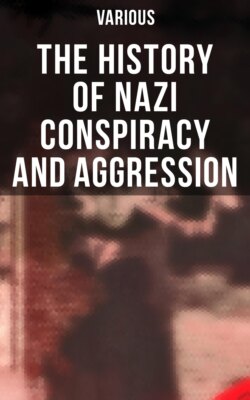Читать книгу The History of Nazi Conspiracy and Aggression - Various - Страница 85
На сайте Литреса книга снята с продажи.
3. MARTIN BORMANN
ОглавлениеTable of Contents
As the day of the trial approached, Martin Bormann, although named as a defendant in the Indictment, had not yet been apprehended despite the efforts of numerous special investigators. On 17 November 1945 the Tribunal requested the views of the prosecution on the question of trial in absentia. Sir David Maxwell-Fyfe, Deputy Chief Prosecutor of Great Britain, reviewed the information available and, on behalf of the United States and France as well as Great Britain, stated that: “The prosecution cannot say that the matter is beyond a probability that Bormann is dead. There is still the clear possibility that he is alive.” Notice had been publicly given, in the manner prescribed by the Tribunal, that Bormann had been named a defendant, and it was therefore suggested that the case fell within Article 12 of the Charter authorizing trial in absentia. The Soviet representative expressed concurrence; whereupon Lord Justice Lawrence, presiding, orally announced the Tribunal’s ruling, on the same date:
“The Tribunal has decided that, in pursuance of Article 12 of the Charter, it will try the Defendant Bormann in his absence, and it announces that counsel for the Defendant Bormann will be appointed to defend him.”
Thereafter, the counsel named to defend Bormann moved for postponement of the proceedings against the defendant. The Tribunal announced on 22 November through Lord Justice Lawrence, presiding, that:
“* * * in view of the fact that the provisions of the Charter and the Tribunal’s rule of procedure have been strictly carried out in the notices which have been given, and the fact that counsel for Bormann will have ample time before they are called upon to present defense on his behalf, the motion is denied.”
